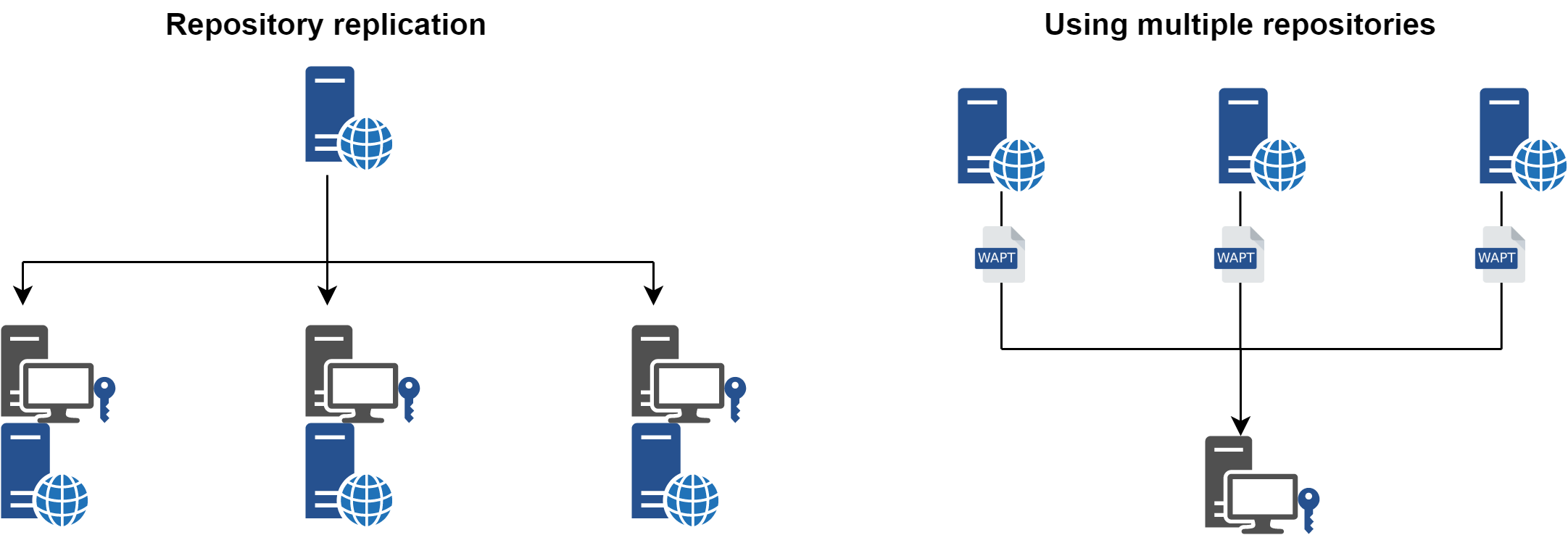Replicating repositories and working with multiple repositories¶
Large organizations with remote sites and subsidiaries sometimes require services to be replicated locally to avoid bandwidth congestion (Edge Computing).

Repository replication and multiple repositories¶
New in version WAPT: Enterprise 1.8
WAPT Enterprise offers the possibility to upgrade remote agents to serve as remote repositories that can be managed directly from the WAPT Console. All WAPT agents can then be centrally configured to automatically select the best repository based on a set of rules.
You’ll find in this part of the documentation how to implement such architectures.
Speaking of repositories, it is sometimes useful to configure two or more repositories for different uses (prod, dev, licensed, selfservice).